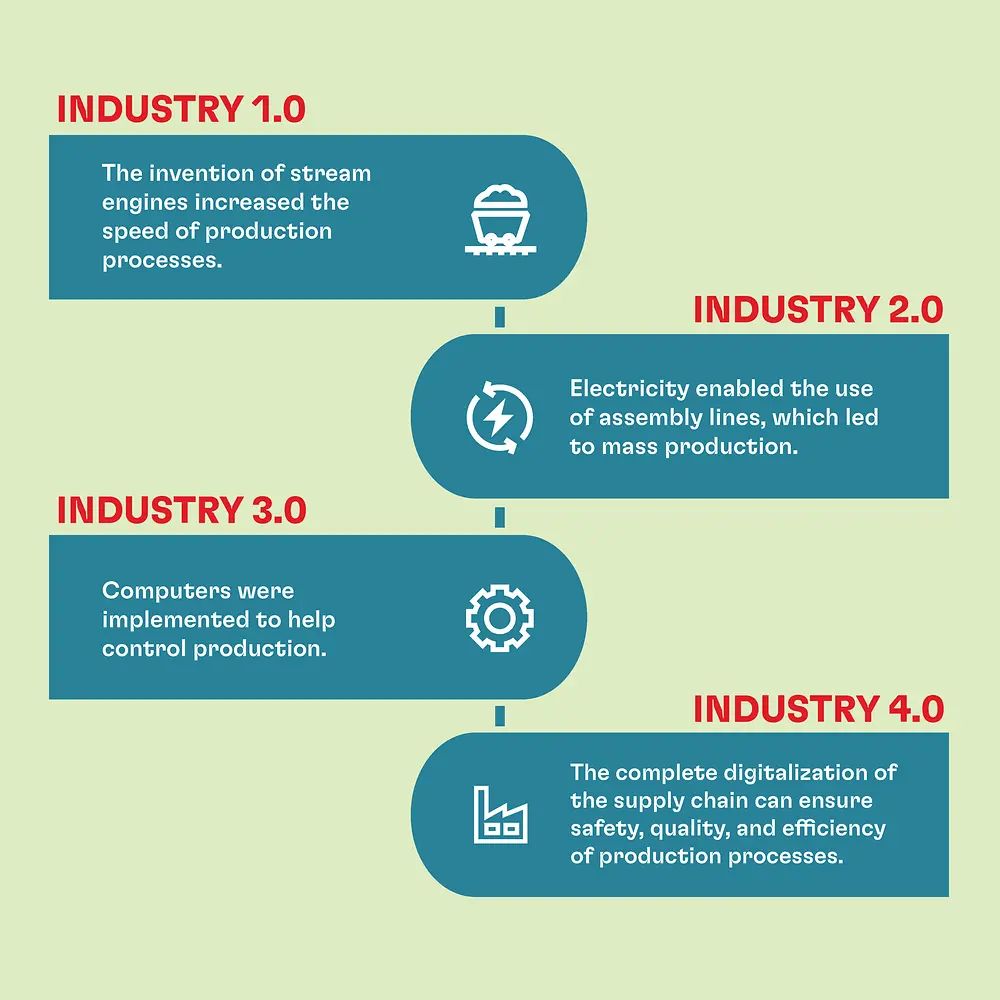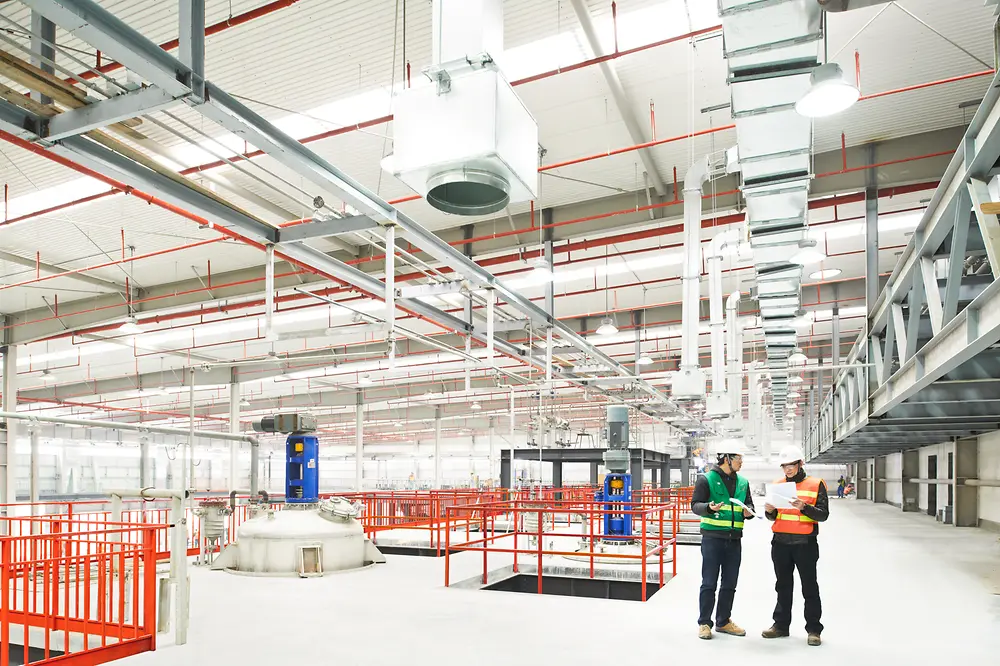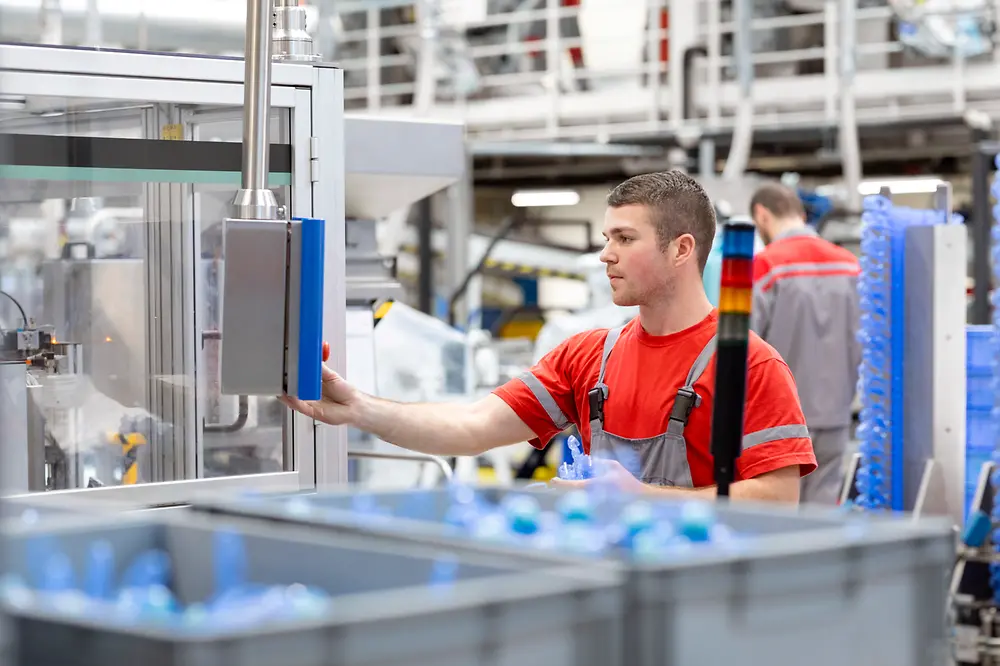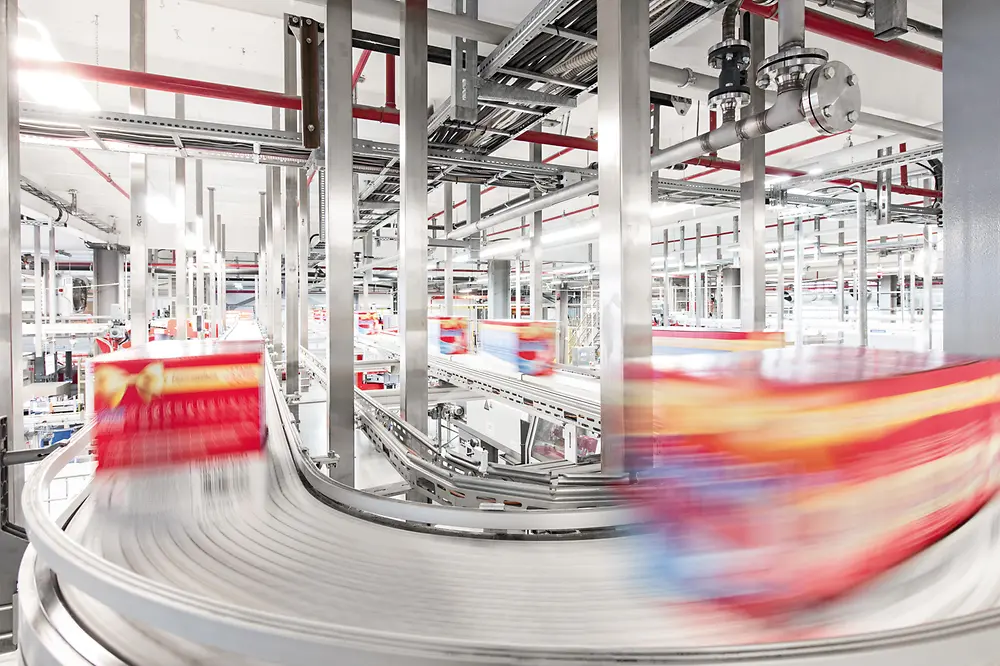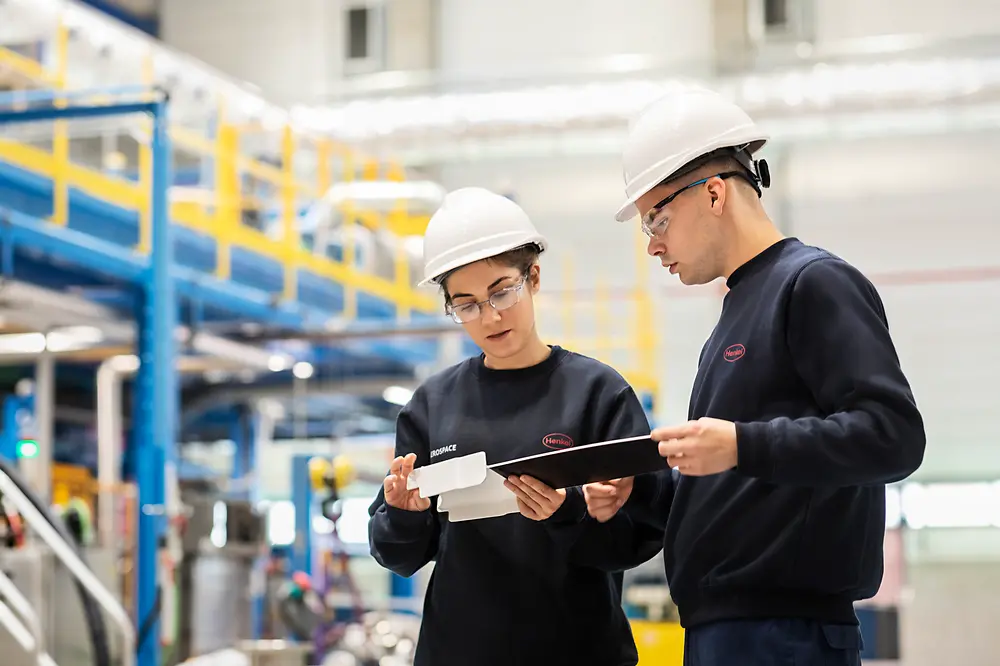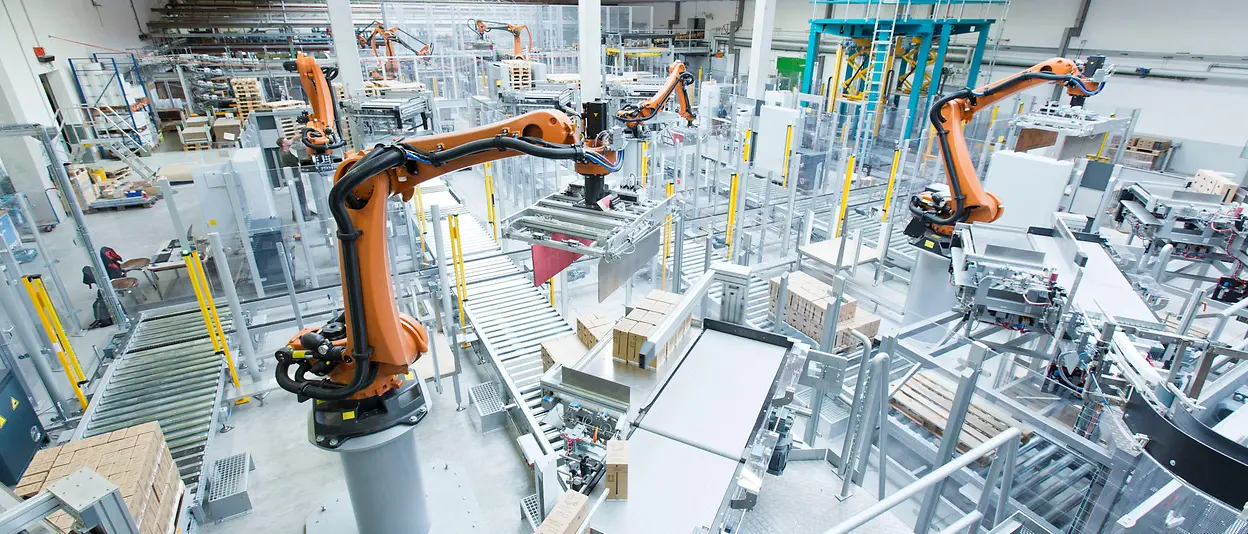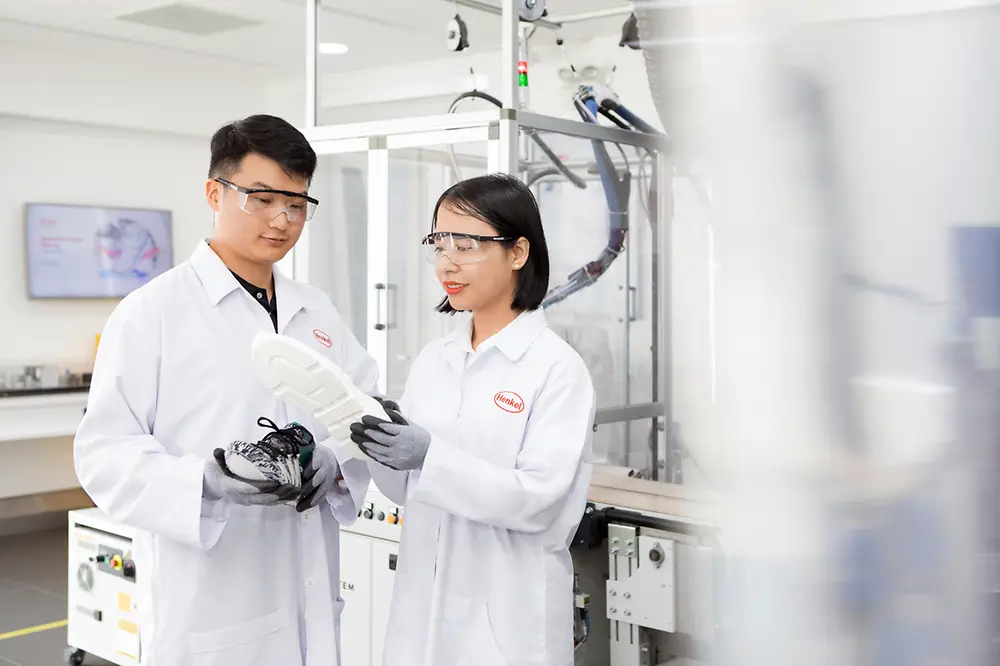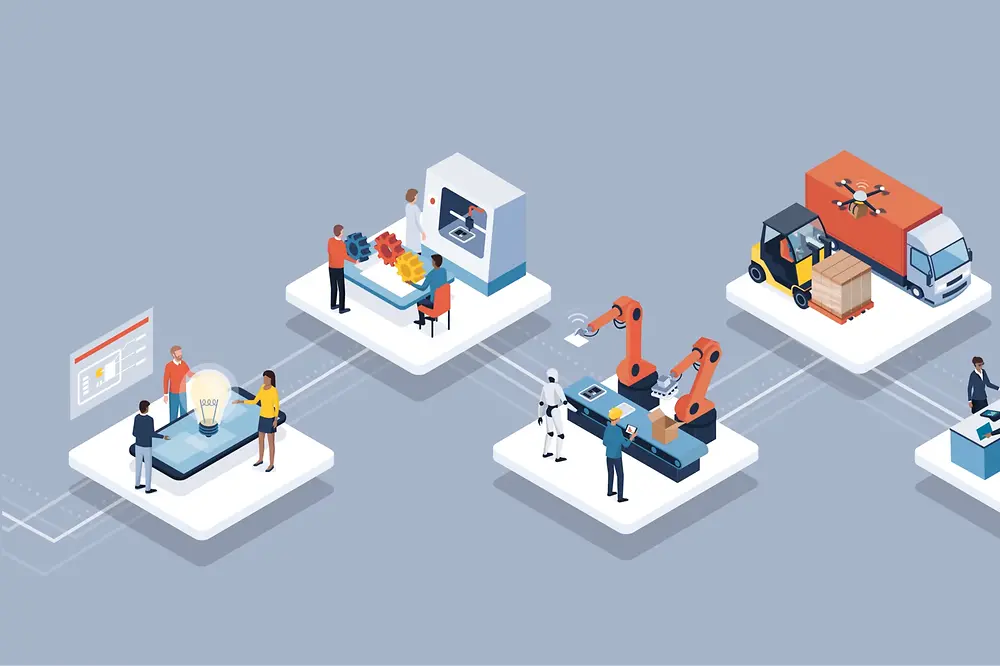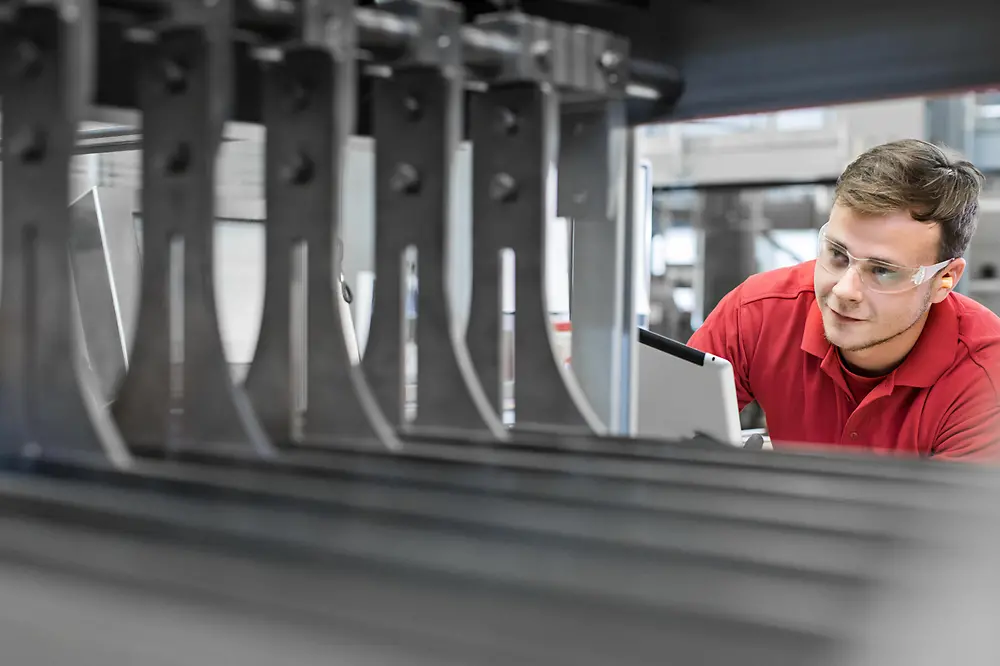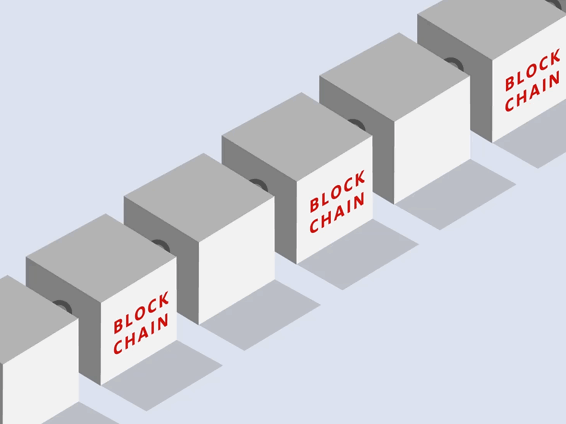It’s efficient, digital, sustainable, connected, and smart. But what exactly is Industry 4.0? It’s the buzzword surrounding the fourth – and completely digital – revolution. After the steam engine and the assembly line, the computer brought about the third industrial revolution. Now, digitalization is transforming the industrial process once more. By taking advantage of this rise in automation, sensorics, data exchange and analytics in real time, companies are producing and delivering products smarter, faster and more efficiently, thereby opening a new world of possibilities.
The foundation for the next industrial age rests in digitalization. With the Cloud, factories and warehouses can be connected and share large amounts of data across sites and company boundaries within the span of a few milliseconds. This same decentralized technology is used to create a trusted, traceable and tamperproof way for people to submit their transactions, called blockchain.
By using sensors and data analytics, machines can actually start “learning” how to be more efficient in their processes. This type of ability in technology is called artificial intelligence, which captures data, identifies trends and enhances the quality and performance of manufacturing plants. With more than 3,500 sensors in more than 180 factories, Henkel computers can gather information on sustainability, efficiency, quality and safety in real-time and allow for cloud-based analytics for diagnostics, predictions and prescriptions.
Throughout the entire value chain, data can be constantly exchanged, which allows for optimal resource planning and allocation. Processes and components can be standardized and digitally connected, turning the dream of the “smart factory” into a reality.







